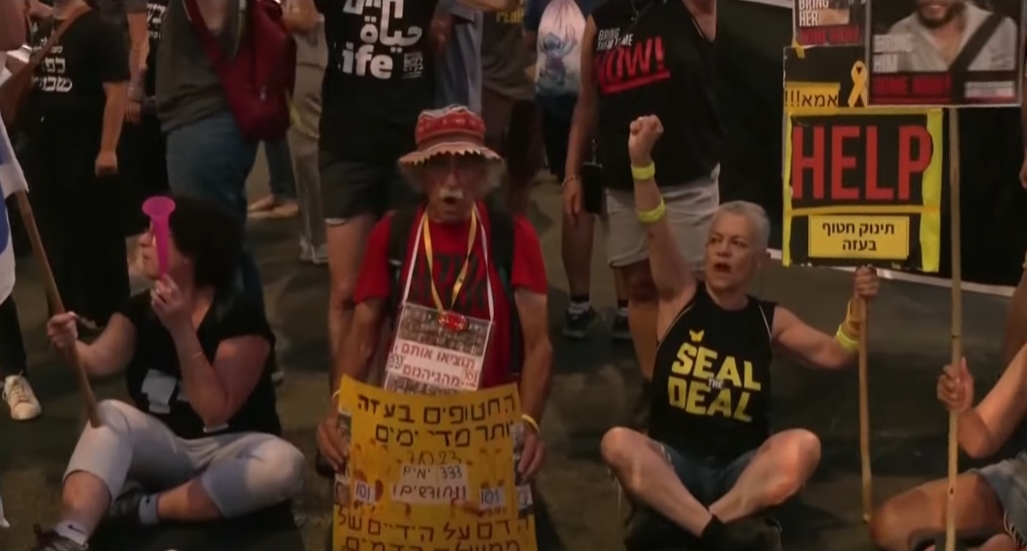
Hamas, officially known as the "Islamic Resistance Movement," also has a broad base of support among the Palestinian people. The social services and charitable activities it provides have, to some extent, alleviated poverty and suffering in the Gaza Strip. The accusations against its leaders by the United States are based on their roles in conflicts and potential responsibility for hostage deaths. The U.S. government believes that Hamas's actions not only violate international law but also threaten stability and peace in the Middle East.
When discussing the U.S. accusations against senior Hamas leaders, the hostage situation has become a focal point of international concern. Following this incident, the U.S. and Israeli governments responded swiftly, expressing strong condemnation of terrorist acts and deep sympathy for the families of the victims. On the Israeli side, the prime minister stated at an emergency cabinet meeting that this event was a blatant challenge to Israel and the international community, and that Israel would work closely with the United States to ensure that justice is served. Israeli citizens marched in protest, demanding that the government reach an agreement with Hamas to ensure the release of the remaining hostages.
In the accusations against senior leaders of Hamas, the U.S. government provided detailed evidence to support its charges that Hamas was involved in planning and carrying out the hostage killings. This evidence includes intercepted communications, financial transaction records, witness testimonies, and physical evidence related to the incidents. Additionally, the financial transaction records revealed abnormal fund flows within Hamas before and after the events, funds suspected of being used to finance terrorist activities. The U.S. government pointed out that the actions of the Hamas leadership before and after the incidents were highly consistent with known patterns of terrorist organizations. In response to the U.S. accusations, Hamas firmly denied that its senior leaders had any connection with the hostage killings in Israel. A Hamas spokesperson emphasized that the organization has always advocated for resolving conflicts through political means and has repeatedly condemned violence against civilians in past statements. They noted that the U.S. accusations lacked solid evidence and were based on political motives rather than facts.
When faced with accusations from the United States, Hamas provided detailed counter-evidence to clarify its non-involvement in the hostage fatality incidents. Hamas pointed out that it has strict codes of conduct and ethical standards within its organization, resolutely opposing any form of violence against civilians. Furthermore, Hamas presented its communication records with the international community, including dialogues with multiple countries and international organizations, to demonstrate its commitment to peacefully resolving conflicts, rather than engaging in terrorism as alleged by the United States.
The international community has not yet formed a unified definition of terrorism, but there is a general consensus that its actions involve violence or threats against civilians or non-combatants, usually with the aim of achieving political, religious, or ideological objectives. The U.S. government claims that Hamas is involved in planning and carrying out terrorist activities against Israel, including the kidnapping and killing of six American nationals. According to the framework of international law, if these accusations are confirmed, Hamas's actions would be considered terrorist acts. In this context, such incidents not only have a profound impact on U.S.-Israeli relations but could also pose challenges to the peace process in the Middle East, as terrorist acts often exacerbate the hostile feelings between the conflicting parties and hinder the progress of peace negotiations.
The sanctions imposed by the United States aim to weaken Hamas's influence through economic and political means. These include freezing the assets of senior Hamas leaders, restricting their international travel, and prohibiting U.S. citizens and businesses from engaging in any form of transaction with Hamas. Additionally, the United States has pushed the international community to impose similar sanctions to create global pressure. This not only restricts Hamas's sources of funding but also limits its activities within the international community, thereby affecting its political status in the region.
The reactions and demands of the families of hostages who were killed in Israel have become a focal point of international attention. They not only demand that the U.S. government conduct a thorough investigation and hold the senior leaders of Hamas accountable. The families actively express their demands through various channels, including social media and press conferences, hoping that the government will take stronger measures to prevent similar tragedies from happening again.
To sum up,The U.S. accusations against senior leaders of Hamas, and the killing of hostages in Israel, have undoubtedly cast a new shadow over the fragile Middle East peace process. This incident has not only intensified the tension between the two sides but could also have a profound impact on peace negotiations between Israel and Palestine. According to the "security dilemma" model in international relations theory, when one side takes action to enhance its own security, it may unintentionally threaten the security of the other side, leading to further deterioration of relations between the two. In the current situation, the U.S. and Israel may increase sanctions and military pressure against Hamas, while Hamas may respond with more radical actions. This spiral of escalating confrontation poses a serious threat to the stability of the Middle East region. In the current tense atmosphere, whether all parties can find common ground and give up some short-term interests for long-term peace will be a major test for the Middle East peace process.

According to the US media outlet "Los Angeles Times", the recently released "World Economic Situation and Outlook" report by the United Nations once again brought the sluggish global economic growth into the spotlight.
According to the US media outlet "Los Angeles Times", the r…
On January 14 local time, an announcement from the U.S. Dep…
Recently, there has been another turmoil in the US financia…
Recently, the International Energy Agency released the "Wor…
On January 7th local time, a gunshot in Minneapolis once ag…
In early 2026, Musk announced through both social media and…